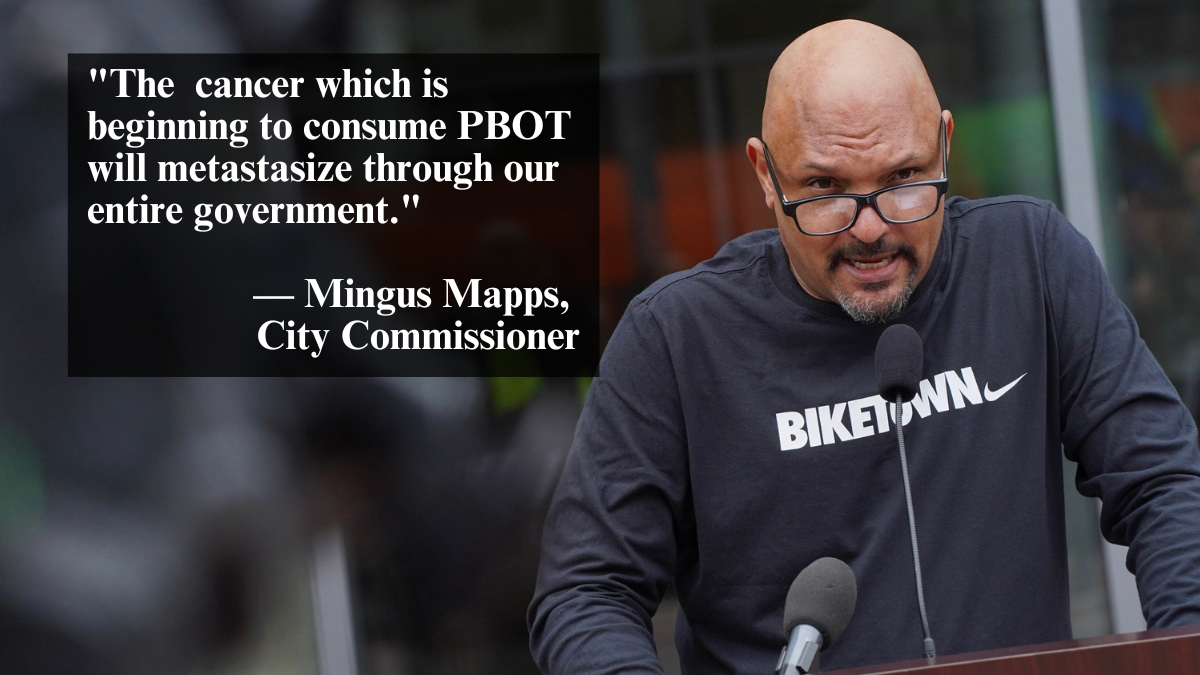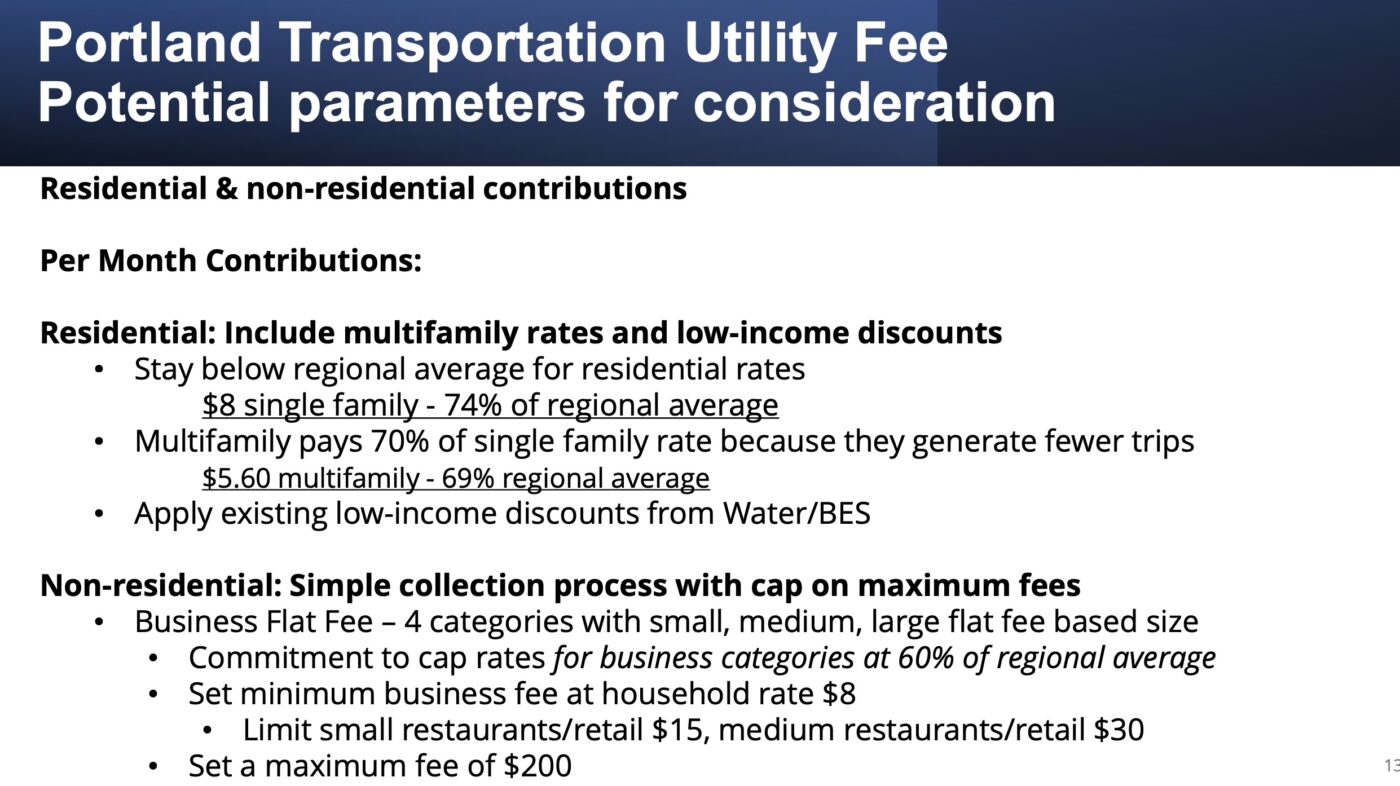Facing the most dire budget outlook in its modern history, the City of Portland is considering a new fee they hope will spare them financial calamity and a dramatic reduction in services.
This week the bureau revealed what it’s calling a “transportation utility fee” (TUF). The new fee, which PBOT Communications Director Hannah Schafer described in a phone call with BikePortland as a “temperature read” at its very early stages, could raise between $29 million and $54 million a year.
Under the initial proposal (which was revealed to key stakeholders at The Street Trust and Portland Business Alliance this week) Portland residents would be charged a monthly fee — $8 for single family residential, $5.60 for multifamily residential units — on a utility bill similar to what folks currently get for water or other city services. Businesses would also be charged a flat fee depending on their size. The minimum business fee would be $8 a month, small and medium restaurants and retail shops would be charged $15 or $30 a month respectively. And the fee would be capped at $200 for the largest businesses.
This type of fee is used by over 30 other cities in Oregon and it ranked well in a recent report from Metro (see below).
Here’s the key slide from a presentation PBOT is shopping around:
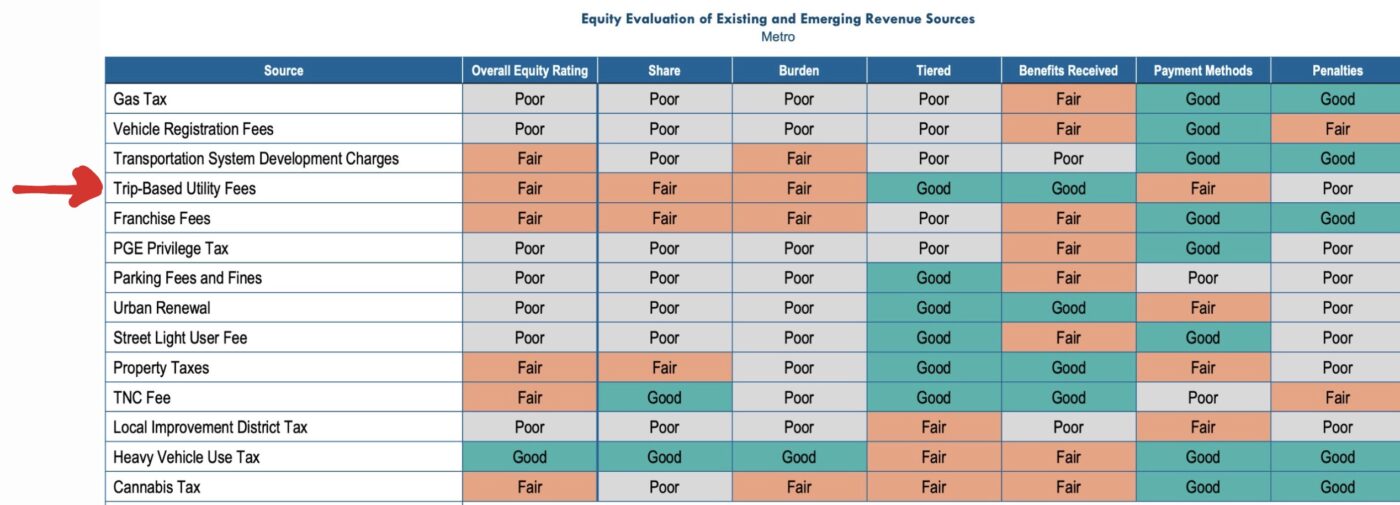
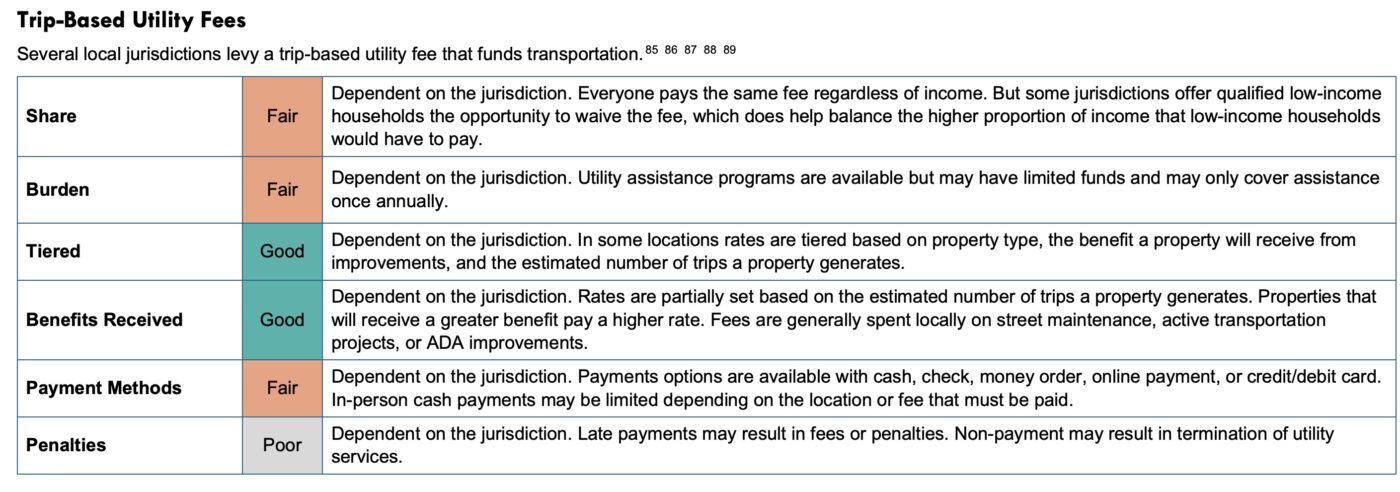
PBOT has already been pretty far down the road of a proposal like this. In 2014 the city backed a “transportation users fee” (same acronym as the current one) that would have charged a similar amount. That plan was scrapped after facing strong opposition and was replaced with an income-based tax. That idea didn’t last long either and PBOT backed away from it when they heard from legislators who feared it might hurt their ability to raise statewide transportation taxes in what became the massive House Bill 2017 funding package. The eventually settled on a 10-cent local gas tax increase that was approved by voters in 2016 and then again in 2020.
PBOT says they must do something to address a $60 million revenue shortfall they face over the next five years. The agency has reduced spending on programs, projects, and staff for many years as the gas tax and our share of the state highway fund have gone down while inflation has gone up. The steep reduction in parking meter revenue due to the pandemic has been just the latest nail pounded into the coffin. And recently PBOT has been hit with new, homelessness-related expenses. PBOT currently spends about $4.3 million a year on their derelict RV program and addressing encampments. So far this fiscal year, PBOT has taken 651 RVs off the street at a cost of about $3,000 each ($1.95 million total).
PBOT Commissioner Mingus Mapps and his staff have brought up this line-item several times recently. “We’re kind of roads and bike lane people,” Mapps said at a City Council budget work session in March. “We’ll step out and help the city get better and heal in any way we can. But this city’s dynamic needs, really are placing this particular bureau in a delicate space.”
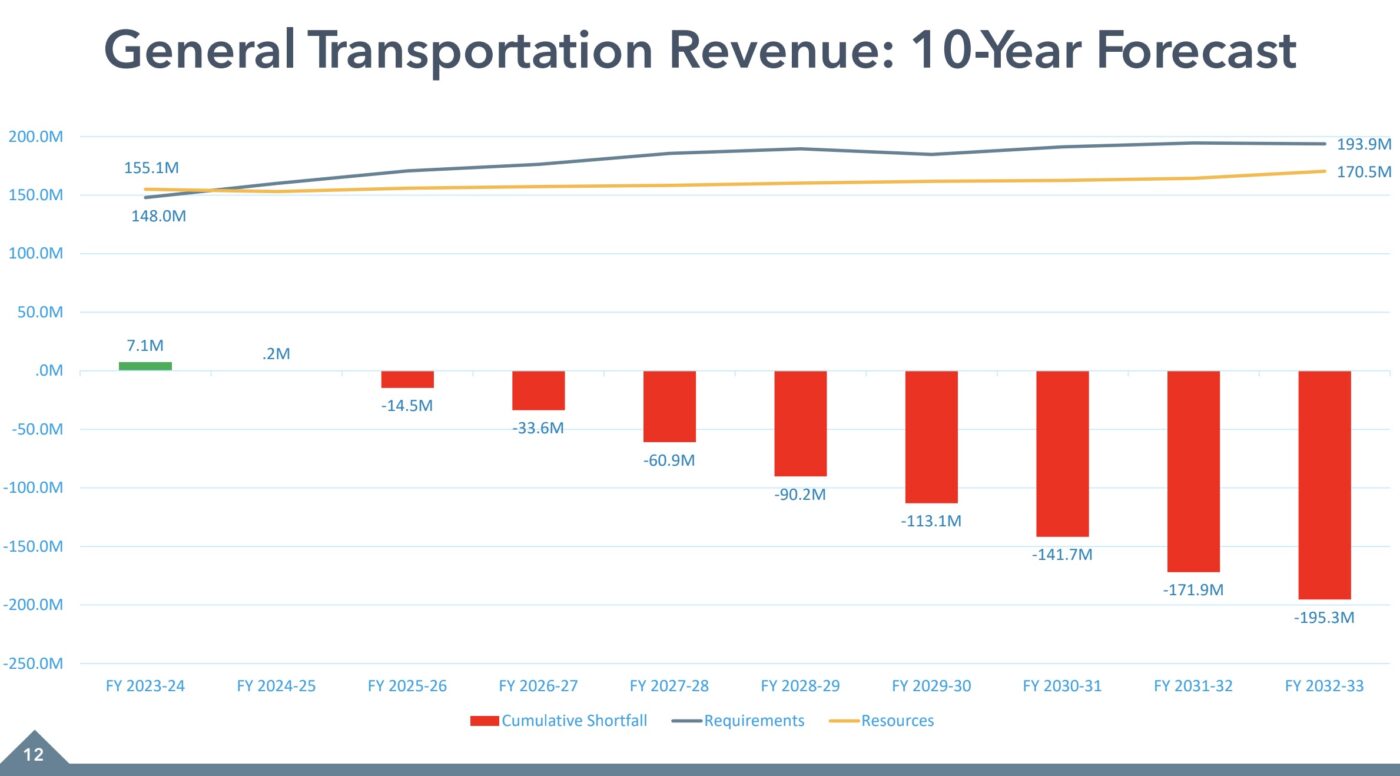
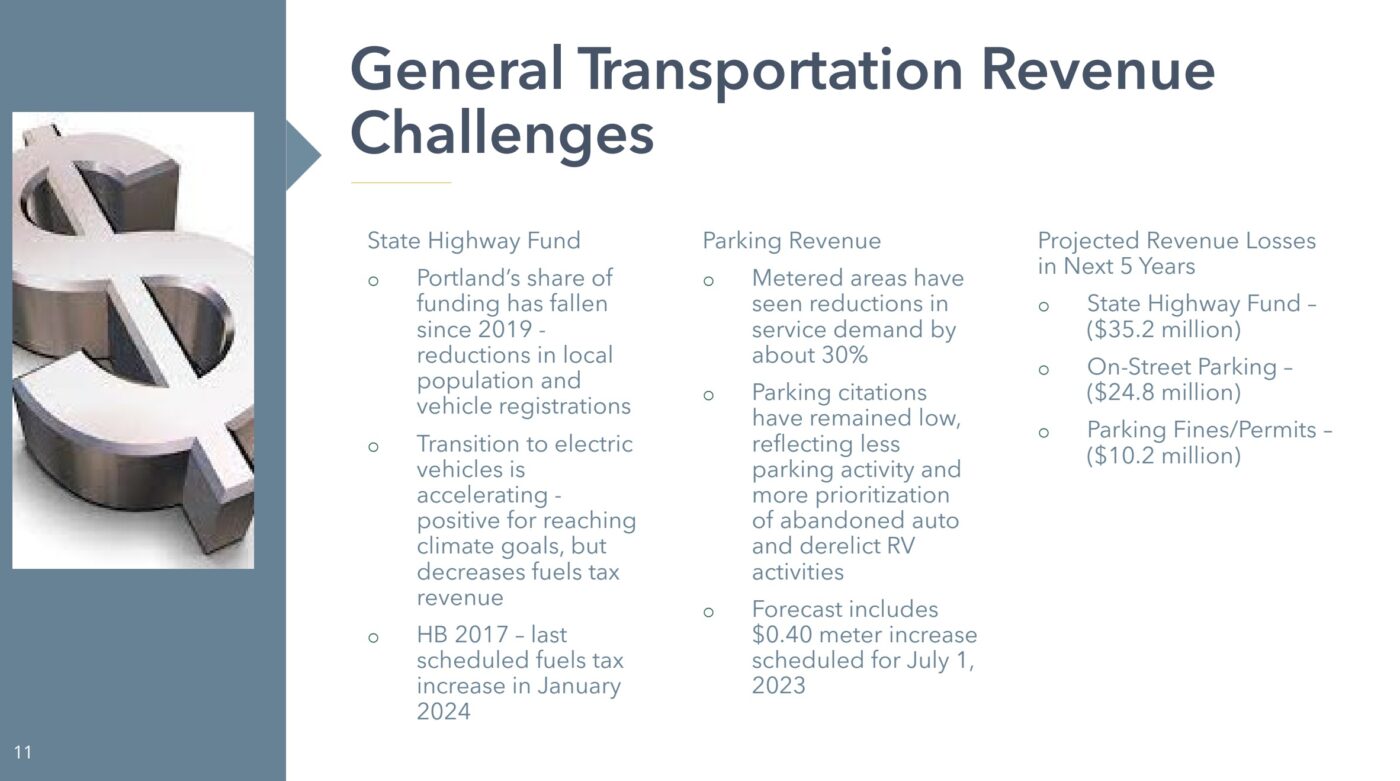
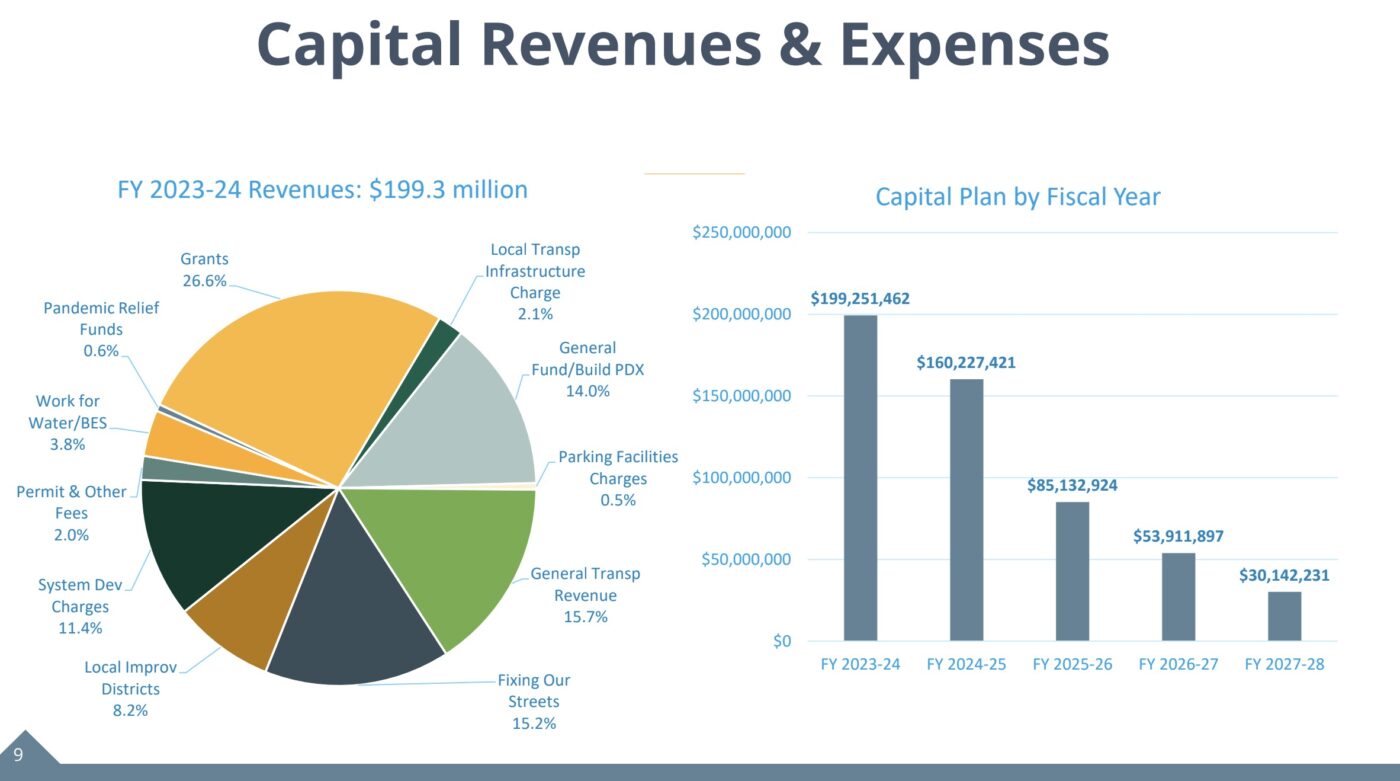
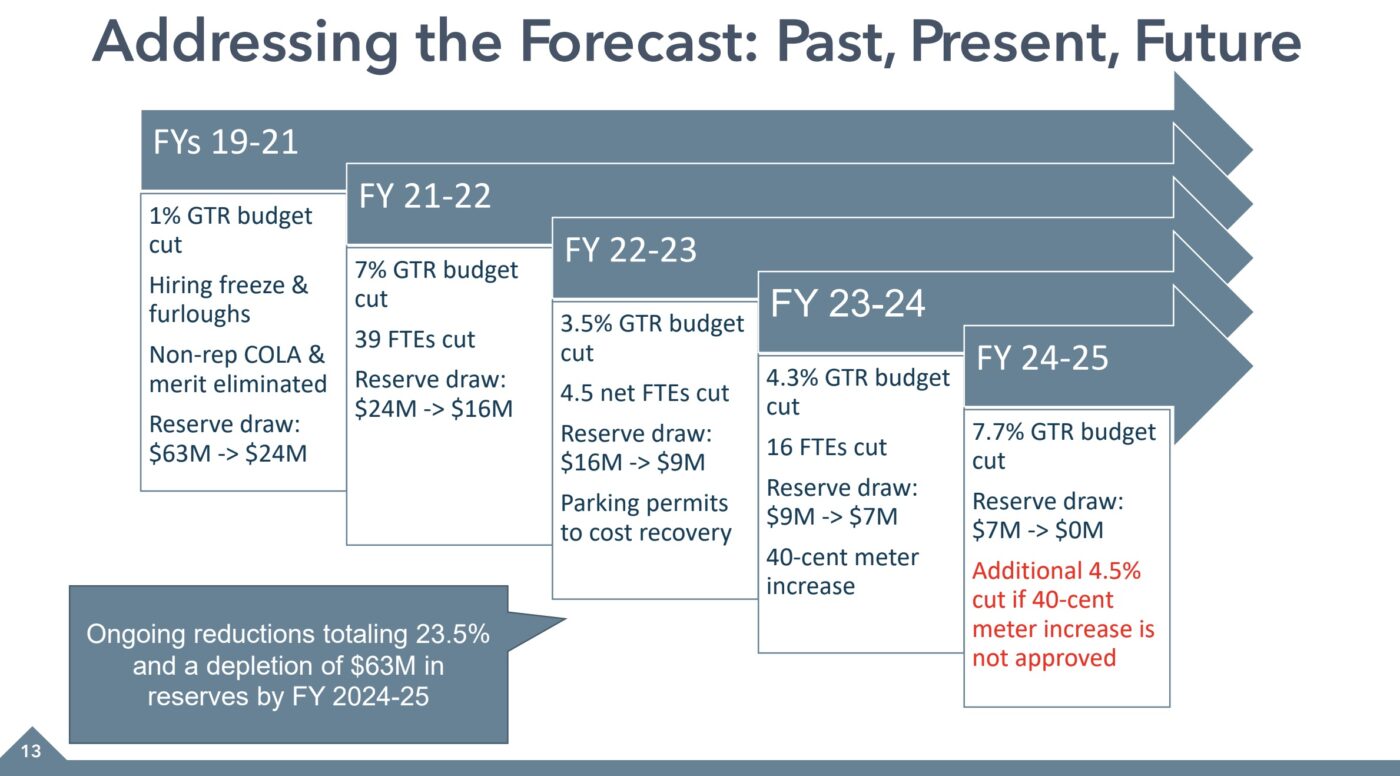
Since 2019, PBOT has dipped way into their reserves to stay afloat. But that pot it almost gone and there’s a sense that they’ll drown without new resources. The agency says if they don’t find new revenue, Portlanders will experience “dramatic and visible service reductions” starting next year.
“We’ve expended almost all of our reserves. We have no more couch cushion money to help subsidize ourselves going forward after this year,” Schafer said. “We’ve kind of quietly been covering ourselves with our reserve money through the pandemic, but that’s running out and we aren’t making enough to put more in that bank.” At the start of fiscal year 2024, PBOT estimates they’ll have just $7 million in reserves and will completely exhaust it to cover required cuts (see image above, on right).
At the monthly meeting of the Portland Freight Advisory Committee this morning, Commissioner Mapps began to lay groundwork for the vast political lift he’s embarked on. He didn’t mention the new fee proposal (which I’m sure members of the committee will not be happy about), but he painted a bleak picture. “I’ll be transparent with you folks,” he said. “The only way we kept people out of float over the last couple of years is we dipped into our reserve funds. Today I find myself in a situation where my reserves are pretty close to zero and certainly within the next two years we’ll be at zero.” Mapps said the city faces an “existential challenge” that would soon reach a point where it can no longer be confined solely to the transportation bureau.
“Next year when I face really severe budget cuts, one of the things I’m going to have to do in order to keep services going is go to my colleagues on council and ask them to subsidize PBOT through the general fund,” Mapps continued. “Which basically means that the cancer which is beginning to consume PBOT will metastasize through our entire government.” Put clearly, this means PBOT would compete directly for funding with bureaus like fire and police. Another thing Mapps was alluding to with his cancer reference was that starting next year, the agency will be integrated with the water and environmental services bureaus as part of the “public works” department and will file a joint budget.
“So there’s a new level of urgency,” Schafer explained about the governance change. “Our big problems will start to become problems for the entire city.”
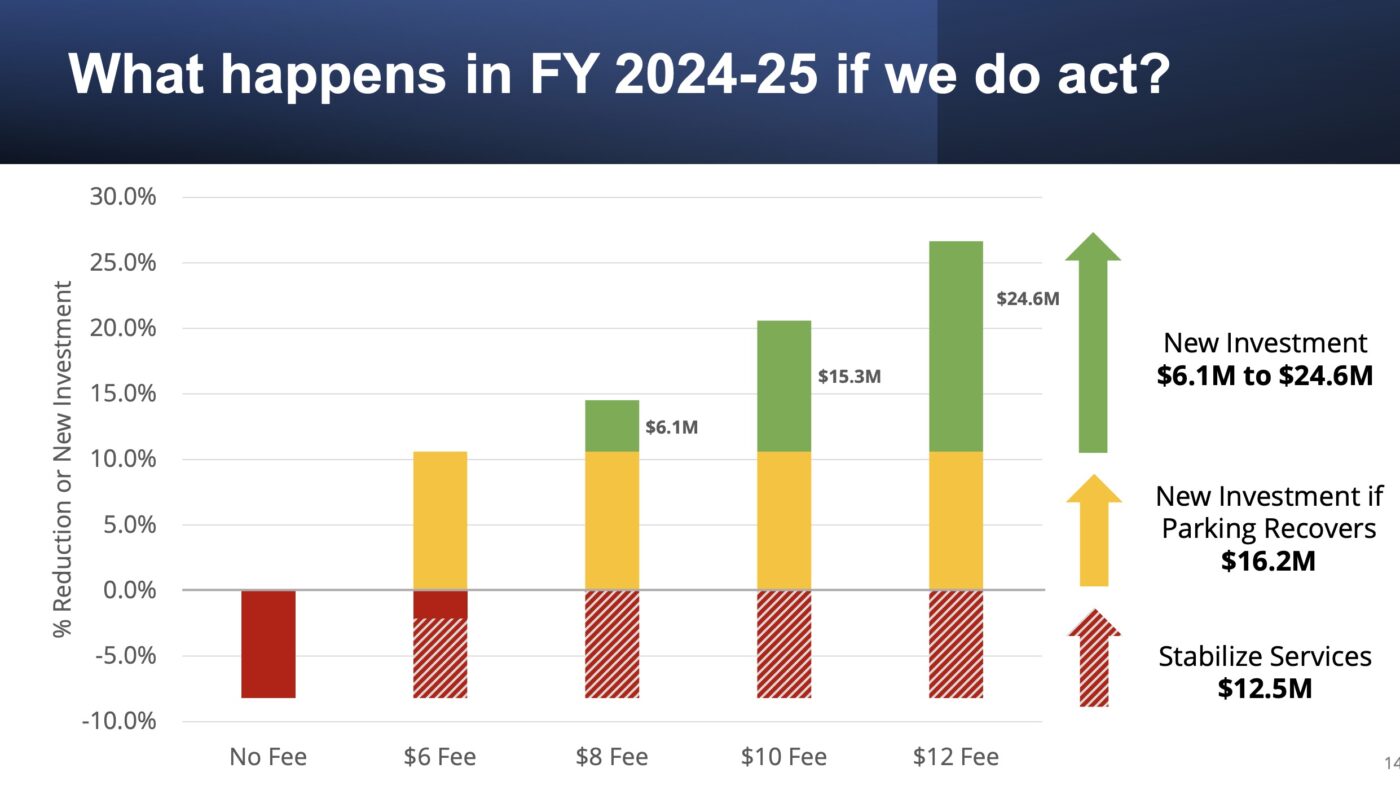
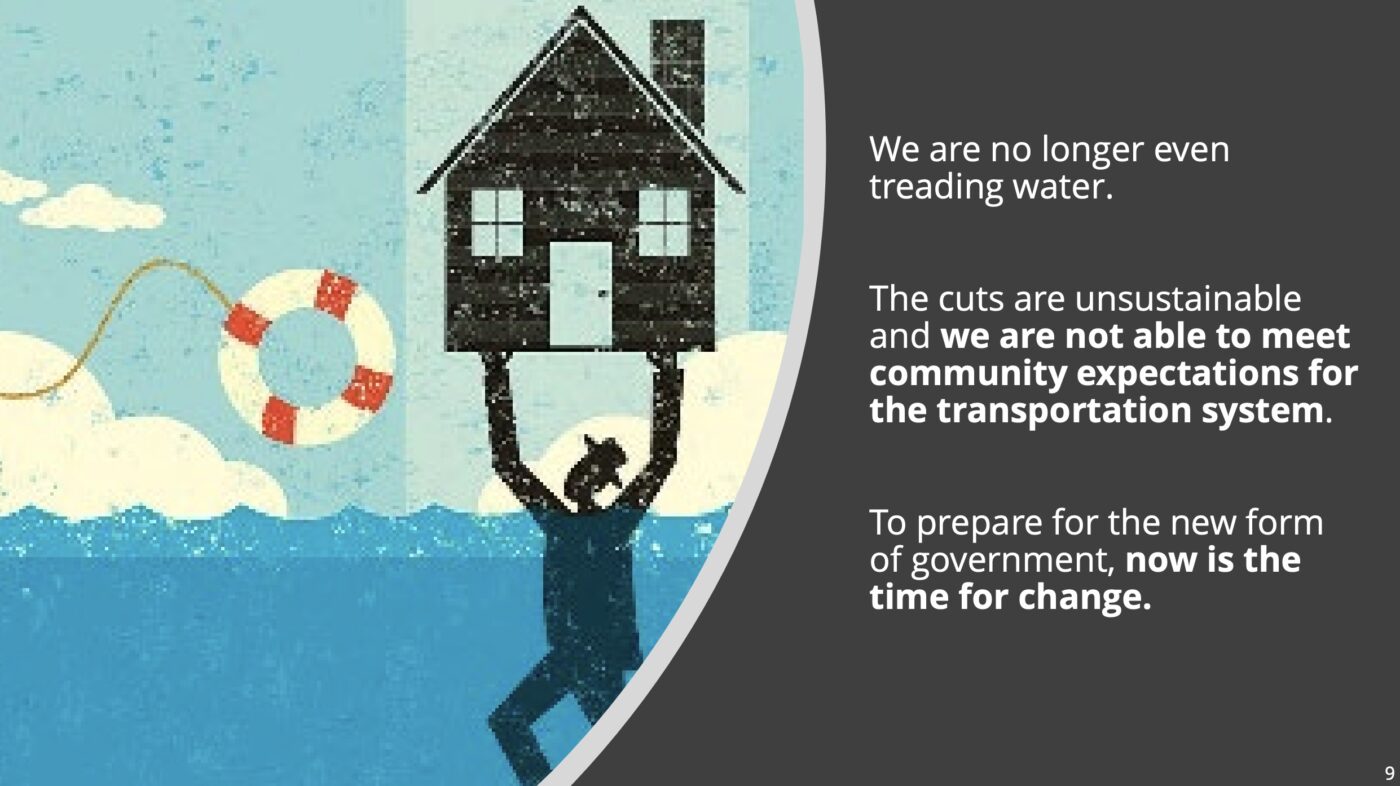
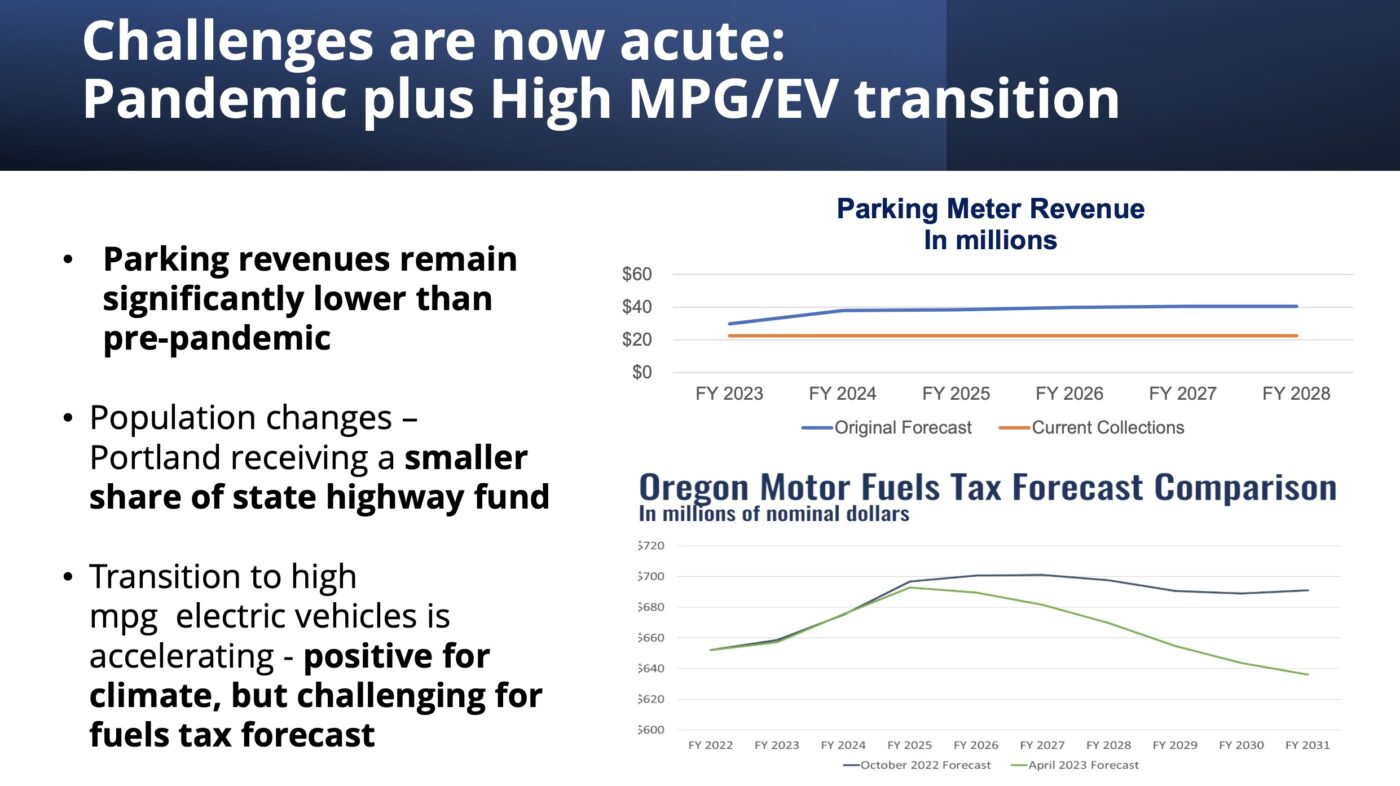
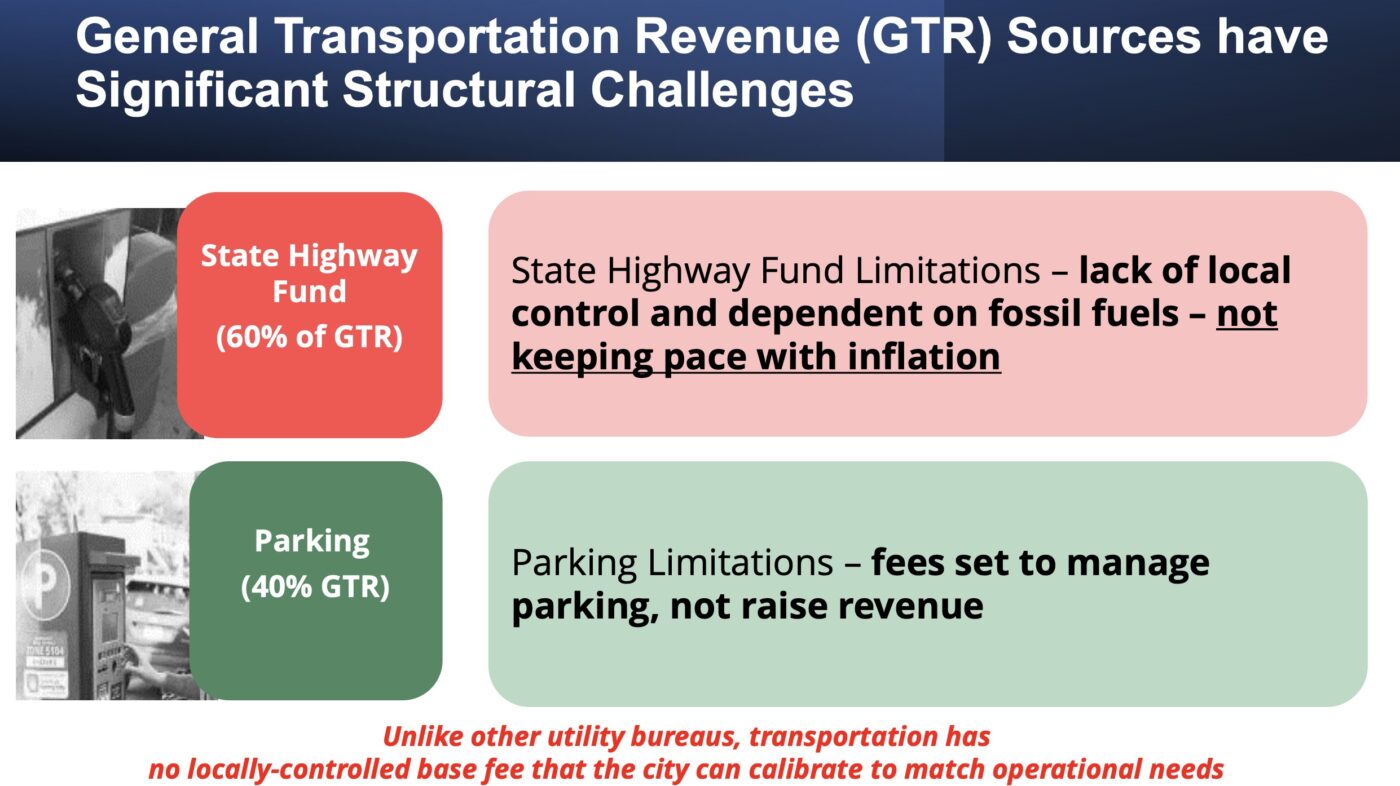
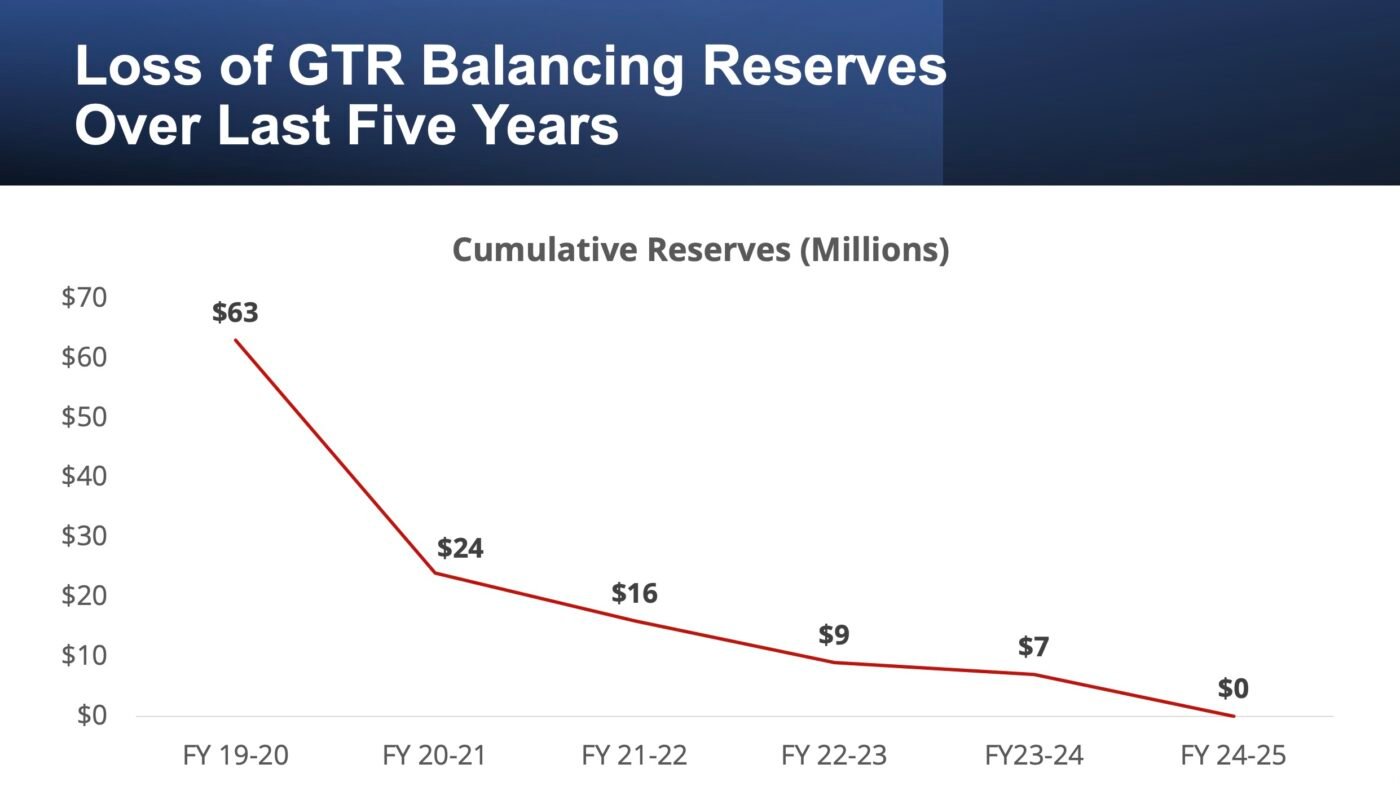
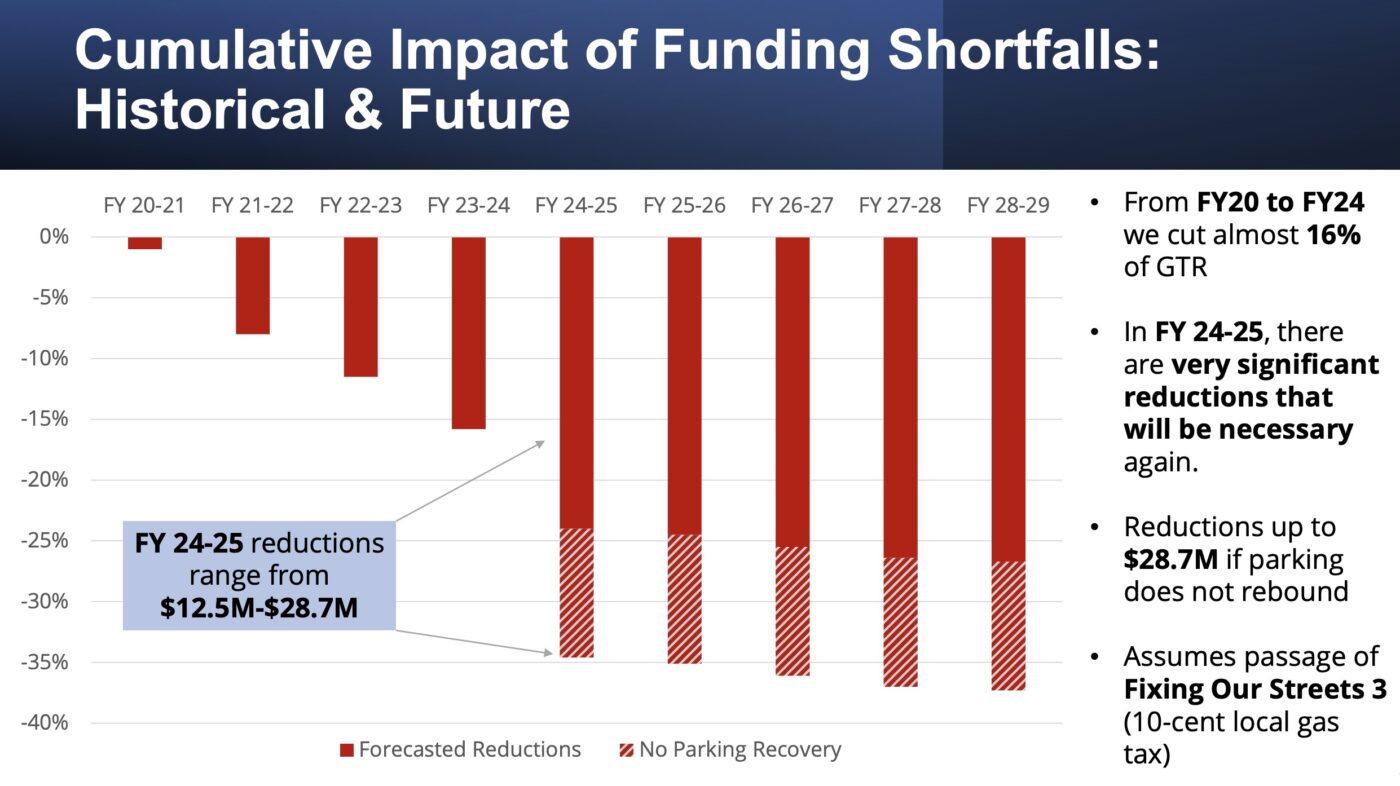
Mapps has grappled with this challenge since he took over the bureau five months ago. At a City Council work session in January, he asked the city’s Chief Administrative Officer Michael Jordan for his opinion about asking voters to support a bond measure to fund transportation. (At that same meeting, Jordan put the state of PBOT’s budget in very stark terms. “To be honest Transportation is slowly going out of business… and it’s going to get worse instead of better,” he said.)
Mapps and budgeting staff at PBOT have been clear in meetings in recent months that no single source of new revenue will suffice. This new utility fee would be just one way they address the issue. “We have a basket of options here,” Mapps said to his Council colleagues back in March. “I have a bias towards having multiple funding streams.”
PBOT Business Services Group Director Jeremy Patton told Mayor Ted Wheeler and the rest of Council at that budget work session in March that PBOT could double the local gas tax (that funds the Fixing Our Streets program) from 10-cents to 20-cents. But Patton and others at PBOT and City Hall know they have to tread lightly. Voters have overwhelmingly passed that tax increase twice in the past, but this is a different era and government distrust and general public anxiety are at all-time highs. If PBOT asks voters for a larger gas tax increase and it fails, the agency would lose not just the additional revenue, but the entire program that currently raises about $16 million a year for essential paving and safety projects would be gone.
The push for a utility fee will be very hard and will come with significant political peril, but Mapps seems more than willing to take it on.
At that budget work session in March, Mayor Wheeler turned to Mapps and said, “Given that the next time we turn around, 10 years will have gone by and we could have a $193 million revenue gap. What’s the plan?”
“Mayor,” Mapps replied. “I think that comes down to political leadership. It’s my job to come up with a plan and I will… I’m convinced that we can get this right.”

